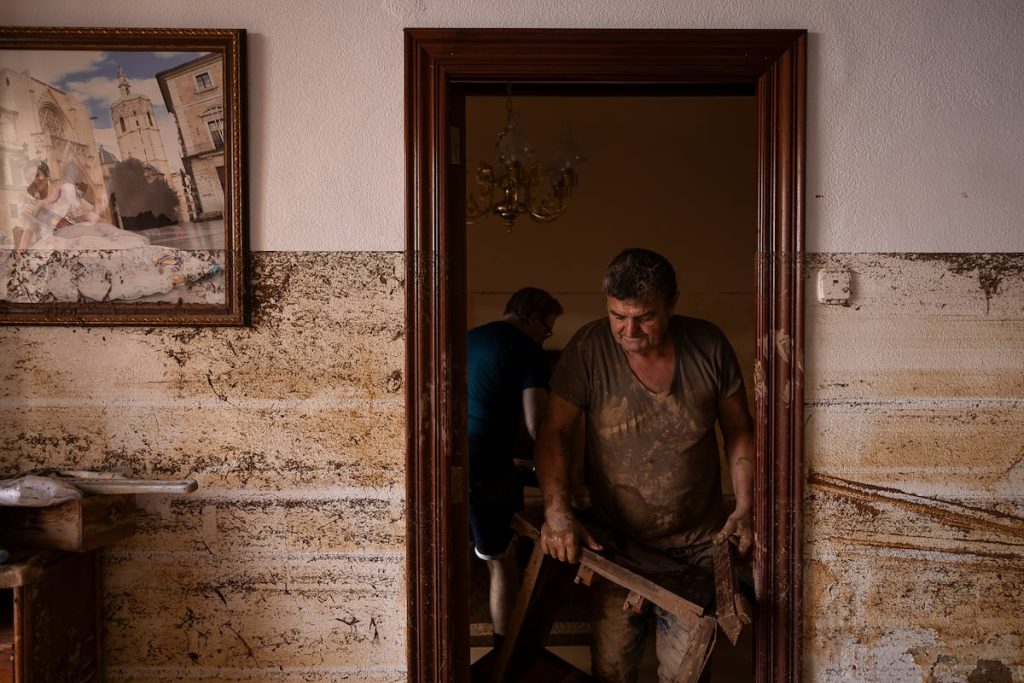Residents of Aldaia, in southern Valencia, were taken by surprise when they heard the threatening roar of water on a Tuesday night, signaling the arrival of a storm that had not been forecasted to bring any precipitation. Despite the lack of rain, a wave of floodwater generated by the storm’s fury began to advance through the town, using the Saleta ravine as its path. This event, caused by the worst dana (Gota Fría) of the century in Spain, resulted in the loss of six lives in Aldaia, highlighting the vulnerability of towns situated near flood-prone areas.
The paradox in Aldaia, and other areas in the southern metropolitan region of Valencia, lies in the fact that despite minimal rainfall, the storm’s impact was devastating. Residents, accustomed to preparing for heavy rain, were caught off guard by the sudden flooding. The lack of prior warning and preparedness by authorities led to tragic consequences, with many lives lost due to the unexpected intensity of the storm. The aftermath of the flooding left the town submerged in mud and water, with residents facing the daunting task of cleaning up and rebuilding their lives.
The failure to take preventive measures and address longstanding issues of construction near flood zones, such as the Saleta ravine, has exacerbated the impact of natural disasters in Aldaia. The rapid rise in water levels, coupled with the impermeable nature of the terrain due to urbanization, led to catastrophic flooding that caught residents unprepared. The need for effective urban planning and infrastructure to mitigate the risks posed by flood-prone areas is a crucial lesson highlighted by the tragic events in Aldaia and surrounding regions.
The story of survival and loss during the storm is etched in the memories of Aldaia’s residents, with tales of tragedy and resilience emerging in the aftermath. The sight of watermarks on walls and the destruction of homes serve as a stark reminder of the power of nature and the importance of proactive disaster prevention measures. The community’s spirit of solidarity and mutual aid in the face of adversity provides hope amidst the devastation, as residents come together to support each other in the recovery process.
As the town grapples with the aftermath of the storm, questions of accountability and responsibility arise, with residents demanding answers and action from authorities. The lack of timely intervention and coordination in responding to the disaster has fueled frustration and anger among those affected. The urgent need for assistance and support in rebuilding lives and homes underscores the importance of effective emergency response and long-term planning to prevent similar tragedies in the future.
Ultimately, the events in Aldaia serve as a stark reminder of the consequences of unchecked urban development and inadequate disaster preparedness. The lessons learned from this tragedy emphasize the need for proactive measures, proper infrastructure, and community resilience to mitigate the impact of natural disasters. As residents work together to overcome the challenges ahead, the determination to rebuild and recover from the devastation reflects the unwavering spirit of a community united in the face of adversity.


